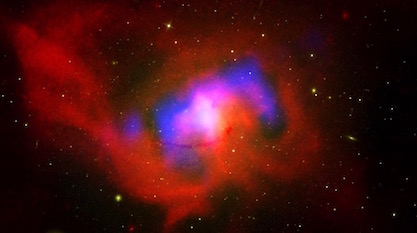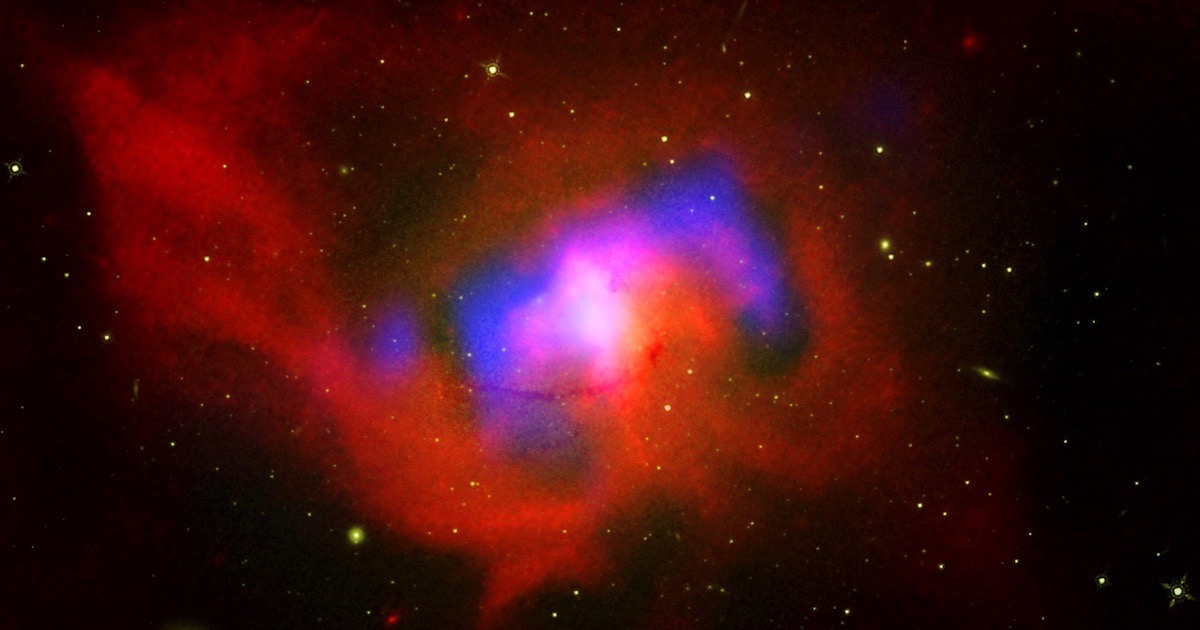 Faith & Science
Faith & Science
Cosmic Fine-Tuning and the Problem of Evil


Philosopher Phillip Goff has a remarkably interesting essay in Aeon titled “Is the Universe a Conscious Mind?” Goff’s essay is worth a post about its central claim — cosmic panpsychism — but I will here focus on one of his reasons for rejecting theism as an explanation for the fine-tuning of the cosmos for sentient life, which is the Anthropic Principle.
Goff’s subtitle is: “Cosmopsychism might seem crazy, but it provides a robust explanatory model for how the universe became fine-tuned for life.”
He rejects both theism and multiverse theory as explanations for cosmic fine-tuning. He considers theism:
Theists postulate an all-powerful and perfectly good supernatural creator of the Universe, and then explain the fine-tuning in terms of the good intentions of this creator. Life is something of great objective value; God in Her goodness wanted to bring about this great value, and hence created laws with constants compatible with its physical possibility.
Goff rejects theism because it makes “false predictions”:
For the theist, the false prediction arises from the problem of evil. If one were told that a given universe was created by an all-loving, all-knowing and all-powerful being, one would not expect that universe to contain enormous amounts of gratuitous suffering. One might not be surprised to find it contained intelligent life, but one would be surprised to learn that life had come about through the gruesome process of natural selection. Why would a loving God who could do absolutely anything choose to create life that way? Prima facie theism predicts a universe that is much better than our own and, because of this, the flaws of our Universe count strongly against the existence of God.
Does theism really predict a universe without “gratuitous” suffering? What then does atheism predict? These questions are more subtle than they first appear. I will work from the classical Christian understanding of theism, in the tradition of Augustine and Aquinas.
Theism predicts two things about evil: that it exists, and that we are not able to entirely comprehend it. Evil exists because the created universe is not God, but His creation, so it must of necessity fall short of God, who is perfectly Good. After all, if the universe were perfectly good, without evil, it would just be God. If the universe is God’s creation, then it must fall short of perfection, and it must contain evil, understood as the deprivation of good. So Goff is mistaken that theism predicts a perfect cosmos, free from evil. Theism posits a perfect God, and a creation necessarily short of perfection. Theism seems to have gotten this “prediction” quite right, because the cosmos is certainly short of perfection. Theism predicts evil in the world, precisely because God is Good and because the world is not God.
Theism also predicts that we cannot completely understand evil. While some kinds of evil may be understood as the consequence of humans endowed with free will, other kinds of evil are much more difficult to explain in light of an omniscient and omnibenevolent God. Why are there earthquakes and plagues and terrible accidents? Yet theism predicts the need for theodicy. As God is perfect and infinite, we are imperfect and finite, so we cannot expect to understand God’s ways. We understand evil in the same way we understand physics — incompletely and with great and sometimes futile effort. God’s thoughts are not our thoughts. So again, Goff is mistaken. Theism predicts that man will not be able to understand evil completely, and indeed we can’t.
It is the third aspect of Goff’s claim against theism that is the most interesting. He claims that the existence of evil in the cosmos counts against God’s existence because it can’t be squared with His omnibenevolence. As we’ve shown, however, theism predicts quite accurately that evil will exist in creation and that some of it will be unfathomable.
But the most striking prediction of theism is that we will recognize evil as evil. That is, theism posits an objective Source of Moral Law and of Goodness against which the cosmos can be measured. If there is no God, there is no objective Source for a distinction between good and evil. If there is no God, there is no overarching “Ought” in the cosmos. There are merely the opinions of men. And surely the opinions of men don’t constitute the measure of good and evil in any meaningful sense.
Genocide isn’t evil merely because I think it is, or because, if you took a poll, most people would think it evil. Genocide is evil because it is morally wrong, objectively. Torturing children is wrong, inherently, and not merely as a matter of opinion. My taste for ice cream and my aversion to wanton murder are qualitatively different. My taste for ice cream is an opinion. It is not evil to like peppermint ice cream. It’s just something I don’t happen to like.
But it is evil to kill innocents. It would be evil to kill innocents whether you or I thought so or not. It would be evil to kill innocents even if everyone thought it was good. Some things are just evil.
Theism predicts this. Theism predicts that there are some things that are evil objectively. Atheism can’t explain objective evil, because atheism denies a Mind that transcends mere human opinion and from which objective Moral Law could be founded.
This observation that the Problem of Evil is evidence for the existence of God, and not evidence for atheism, is not new. It was the gist of Kant’s Categorical Imperative. Kant asserted that the existence of universal Moral Law, which no man can coherently deny, is the fundamental evidence for God’s existence (he denied the validity of the cosmological arguments for God’s existence). Although Kant was wrong about the cosmological arguments, he was right about the Categorical Imperative. Every man knows that some things are evil in themselves, and not as mere human opinion. This is clear evidence for a transcendent Source of Moral Law.
The Problem of Evil is a problem for atheists, not theists. If atheism is true, nothing is evil, or good. All is mere opinion, the musing of evolved apes.
But we know that evil is real and is not merely a matter of man’s opinions. It is objectively wrong to kill or torture. The objectivity of Moral Law is a clear demonstration of God’s existence.
Goff is wrong about theism and the problem of evil. Evil as it exists in the world is exactly what theism, understood classically, predicts. Atheism has a problem of evil, and the existence of genuine evil is fatal to atheism.
Image credit: Supermassive black hole embedded in galaxy NGC 4696, Centaurus galaxy cluster; X-ray: NASA/CXC/MPE/J. Sanders et al.; Optical: NASA/STScI; Radio: NSF/NRAO/VLA.
